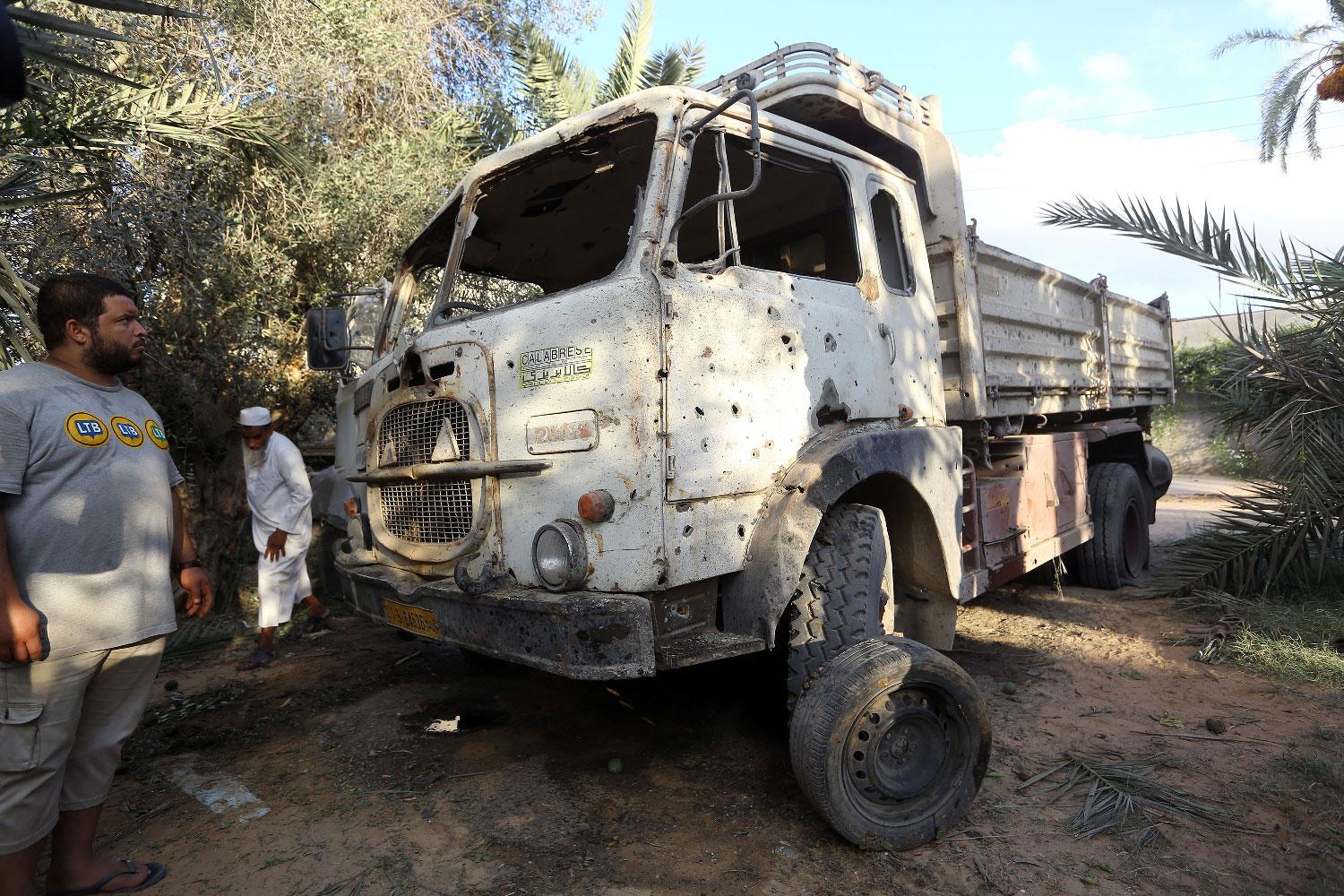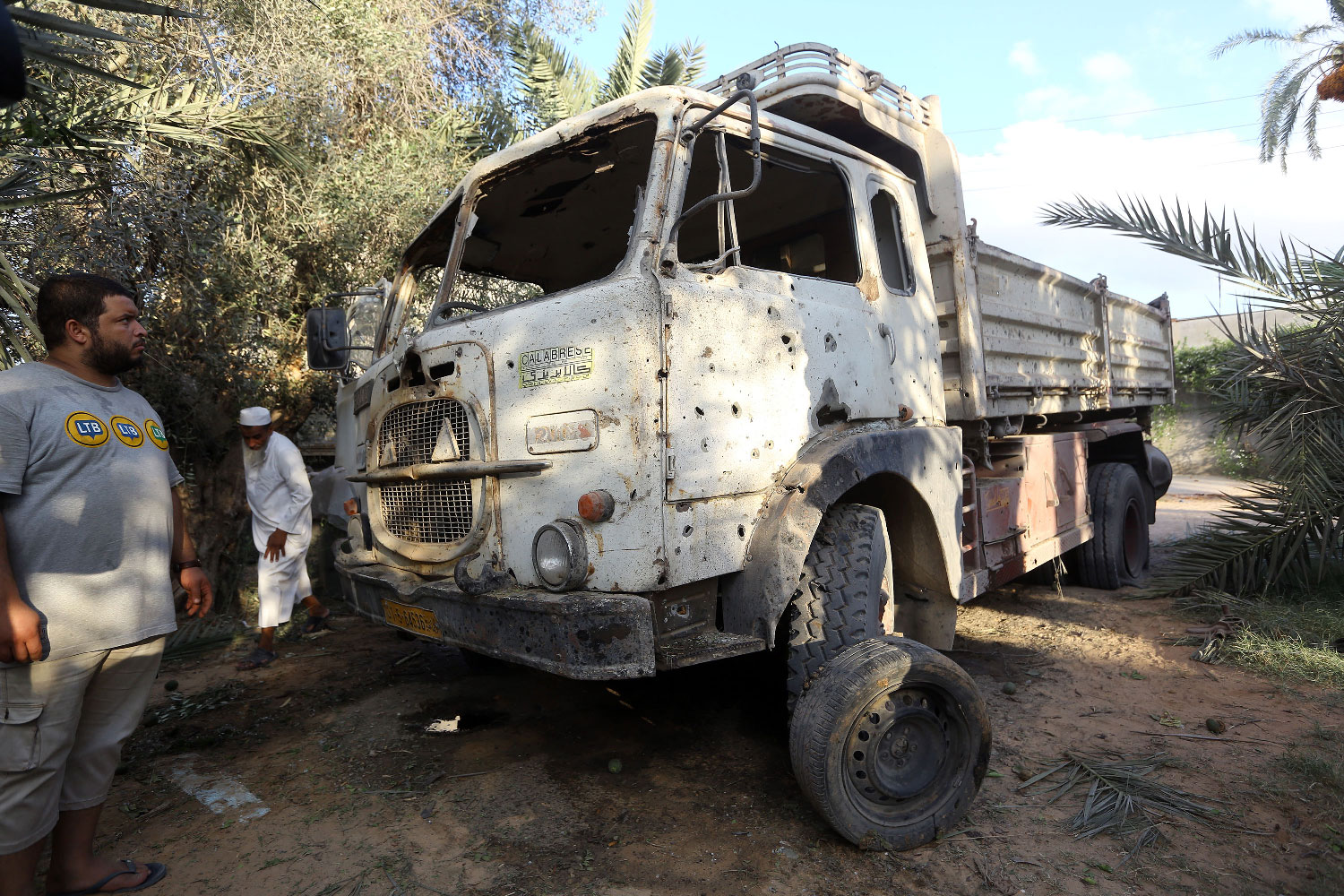UN brokers ceasefire to end clashes in Libyan capital
TRIPOLI - The UN mission in Libya said it brokered a ceasefire on Tuesday to end a week of clashes in the capital Tripoli that have killed dozens and forced thousands to flee their homes.
Fighting in and around Tripoli since August 27 has killed at least 50 people and wounded 138 others, most of them civilians, according to the Libyan health ministry.
The violence has also forced thousands of people to escape to nearby towns or seek shelter in other districts of the capital, while many more have remained trapped inside their homes.
"Under the auspices of (UN envoy Ghassan Salame), a ceasefire agreement was reached and signed today to end all hostilities, protect civilians, safeguard public and private property," the UNSMIL mission said.
Following another day of violent clashes in the capital's southern suburbs, the fighting came to a pause in the early evening but it was unclear if all the groups involved would respect the agreement.
A ceasefire deal announced on Friday by officials from western cities only held for a few hours.
After that, UNSMIL invited the "various Libyan parties" to Tuesday talks for an "urgent dialogue on the current security situation in Tripoli".
The UN mission announced the ceasefire hours later on Twitter.
It said the agreement also provided for the reopening of Mitiga airport, the capital's only functioning airport that has been closed since August 31 due to the clashes.
The agreement "today does not aim to fix all the Libyan capital's security problems; it seeks to agree on a broader framework on the way to start addressing these issues," it added.
The UN mission said among those who took part in the closed-door talks were military officers and leaders of various armed groups present in and around the capital.
Representatives of the UN-backed Government of National Accord (GNA) including the interior minister also attended the talks.
'Very fragile' ceasefire
The Libyan capital has been at the centre of a battle for influence between armed groups since the fall of dictator Moamer Kadhafi in 2011.
The fighting has pitted armed groups from Tarhuna and Misrata against other militias from Tripoli supposed to be under the GNA's control.
The GNA, which has been unable to form a functioning army or regular security forces, has been forced to rely in such militias to keep Tripoli safe.
Most of the militias formed the backbone of the uprising that toppled Kadhafi.
Since then rival administrations, including one based in the remote east, and the militias have competed for authority and oil wealth in the North African country.
Mohamed Eljarh, an analyst who heads the Libya Outlook consultancy based in Tobruk, said the ceasefire agreement was "very fragile".
"Simple and straightforward points (were) agreed by factions, but no framework is in place to guarantee (a) sustainable agreement yet," he wrote on Twitter.
Eljarh urged UNSMIL and the authorities to implement previously agreed security arrangements or to come up with a new one as part of a broader political and reconciliation process.
Civilians trapped
Concerns had been growing about the impact of the fighting on civilians.
The UN-backed government said Tuesday the violence had forced 1,825 families to flee to nearby towns or seek shelter elsewhere in Tripoli.
But many more remained trapped inside their homes and some refused to leave, fearing their property could be looted, said the ministry for displaced people's affairs.
These families had an urgent need for food and water, it said, adding rescuers who had tried to assist them have come under attack from unidentified assailants who also stole ambulances.
The UN refugee agency urged the factions to "spare civilians and... allow safe passage for those seeking refuge in safer areas.
"Recent shelling of civilian neighbourhoods has caused death, destruction and displacement and is of great concern," said UNHCR spokesman Charlie Yaxley.
The UN rights office expressed concern about the impact on vulnerable people, including migrants.
"Some of the nearly 8,000 arbitrarily detained migrants are trapped in detention centres in areas where fighting has been taking place, without access to food or medical treatment," said spokeswoman Elizabeth Throssel.


